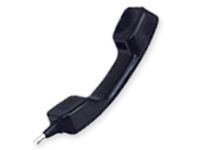Building a better Packaging Crate
Farmers have been shipping their strawberries, cherries, and other small produce in cardboard crates, for decades. Liland Technology says the better crate is a plastic crate. Cardboard gets wet and is liable to rip apart, damaging the contents. And the wax-coated cardboard cuts off air circulation to the produce, drastically reducing the produce's shelf life.
Now Liland Technology is marketing and selling a revolutionary new produce crate that is the first complete field to retail system. Instead of cardboard, it's made of plastic. The system is called Fresh-Pakk TM . Fresh-Pakk TM comes with pint-sized (340 gram or larger) perforated plastic baskets or solid, complete with snap-on clear plastic covers for added produce protection, and racks to suspend the baskets.
Chip Mandela Vice-President of Liland Technology states, the Fresh-Pakk TM System saves farmers money over cardboard by eliminating repackaging, shipping more product in the same space, enhancing air flow, allowing greater opportunity for reduced spoilage rebates, and increasing sales by attracting customers to the colorful free standing system freeing shelf space.
The system allows small produce (i.e. strawberries and cherries) to be picked and placed into the Fresh-Pakk TM System and shipped directly to the store. Less handling not only means lower labor costs, it means reduced bruising and higher quality produce. The more produce is handled, the more bruising occurs.
Charles Li of Liland Technology states, "The racks will translate into greater sales for the grocery stores, surveys have shown consumers are attracted to color and purchase from colorful displays. The free standing system also saves the grocery store's shelf space and labor. The system can be any color requested by the farmer, distributor or supermarket."
The plastic rack and basket also allows air to circulate around the product, increasing shelf life. By suspending the baskets from the rack the produce is not suffocated under the weight of the produce and wax-coated cardboard. This results in reduced cooling times of up to 50% faster.
John Lien-Teng Li, of Taiwan, invented the plastic crate after noticing how flimsy cardboard produce crates can be. He believed the $80 billion-a-year produce packaging market needed a better system then cardboard. Liland Technology has filed for patents throughout the world for the new system. Currently, the system is patented in Taiwan and United States with patents pending in Australia, Canada, China, Europe, Japan, Mexico, New Zealand, and United Kingdom.
The Fresh-Pakk TM System offers many advantages including reusability, recyclable, enhanced air flow, and space reduction. Cardboard crates are discarded after one use. This system can be reused many times increasing the savings to farmers. The system is also fully recyclable as a number 5 polypropylene recyclable. Wax-coated cardboard fills the landfills because the wax can not be separated from the cardboard during the recycling process.
Charles Li is marketing and distributing the Fresh-Pakk TM System through the Eastern United States while Chip Mandela coordinates activities through the Western United States. Liland Technology is available for additional comments at the Western Regional Office at Tel (877) 504-1060 or Email questions@liland.net.





